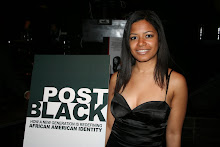
When did making a good speech or two become a bad thing?
I didn't plan on dealing an inordinate amount of blogspace to what are now daily Obama talking points spawn by the Clinton camp. I find myself following the presidential primaries like a never ending football game and I feel a bit manipulated.
However, in the wake of the "fantasy" comments hurled by former president Bill Clinton, in reference to Obama's campaign, as well as the mildly twisted commentary about Lyndon B. Johnson's role vs. that of Martin Luther King's in the civil rights movement, the use of words is under more scrutiny than ever. Campaigns, media pundits and the like just love what I call code words. And in a race that both camps want to say is not about race or gender, the race is in fact so exciting because of race and gender, and the campaign is chock full of words with double meaning to remind you so.
Orator is one of those words.
Political spinners are playing into the embedded popular history consciousness by playing on words that are entrenched in history. While there's been quite a bit of media analysis on the fantasy and King statements, few are looking at the Hilary camps use of the word orator.
Obama's been accused of being an orator: a charming guy who gives really nice speeches. A man who can master words to touch hearts and move masses.
While this is positioned by the Hilary camp as a very limiting thing, a trait that somehow belies action, we'd be foolish to ignore that words have power.
American history and lore, our glorious past are rife with noteworthy orators. "Give me liberty or give me death" "Ask not what your country can do for you, but what you can do for your country" "Four score and seven years ago. . . etc, etc." Let's face it, our national icons were some pretty doggone good orators. Where their oratory skills failed them, we can at least say they wrote some amazing speeches.
Martin Luther King, John F. Kennedy, Thomas Jefferson, Sojouner Truth, Barbera Jordan ,Franklin Delano Roosevelt, Susan B. Anthony, Frederick Douglass and others are heralded for their speeches. Now granted, they took some dramatic actions as well. But their words, their speeches shaped a time, a movement that left an indelible print on America.
There were many intelligent strategists who surrounded King, many of whom designed the Montgomery Bus Boycott, organized The March on Washington, etc. While these strategist were arguably more knowledgeable of politics and had more experience in organizing, these loyal intellects didn't have the ability to move people. King, through his words and presence, was able to galvanize people of all ethnic groups, classes and sex, to raise individuals to new heights and take actions they didn't think were possible. That's a talent and a rare gift.
The African American tradition is rooted in oral tradition and people who chose to speak for justice in the face of hostility. Churches and other religious institutions, civic organizations, civil rights groups and others in African American history are entrenched in traditions of fine orators.
In fact, one could argue that to even snag leadership in the midst of social change, it is a requirement to have oratory talents. Aspiring leaders had to be able to rouse crowds with words of inspiration. But that's just the point. Orators stimulate action, typically through their own action. So it's no surprise, that most of the so called great civic leaders of the 19th and 20th centuries were also great speech makers.
Let's be clear, an orator is not some rote term for men and women who can use fancy words. Orators move people. They're change agents. For a country that's always prided itself as a beacon for democracy, with the First Amendement protecting, above other things, freedom of speech, there is no doubt that orators and speech making is as American as stove fresh apple pie.
Ummm, yum.

No comments:
Post a Comment